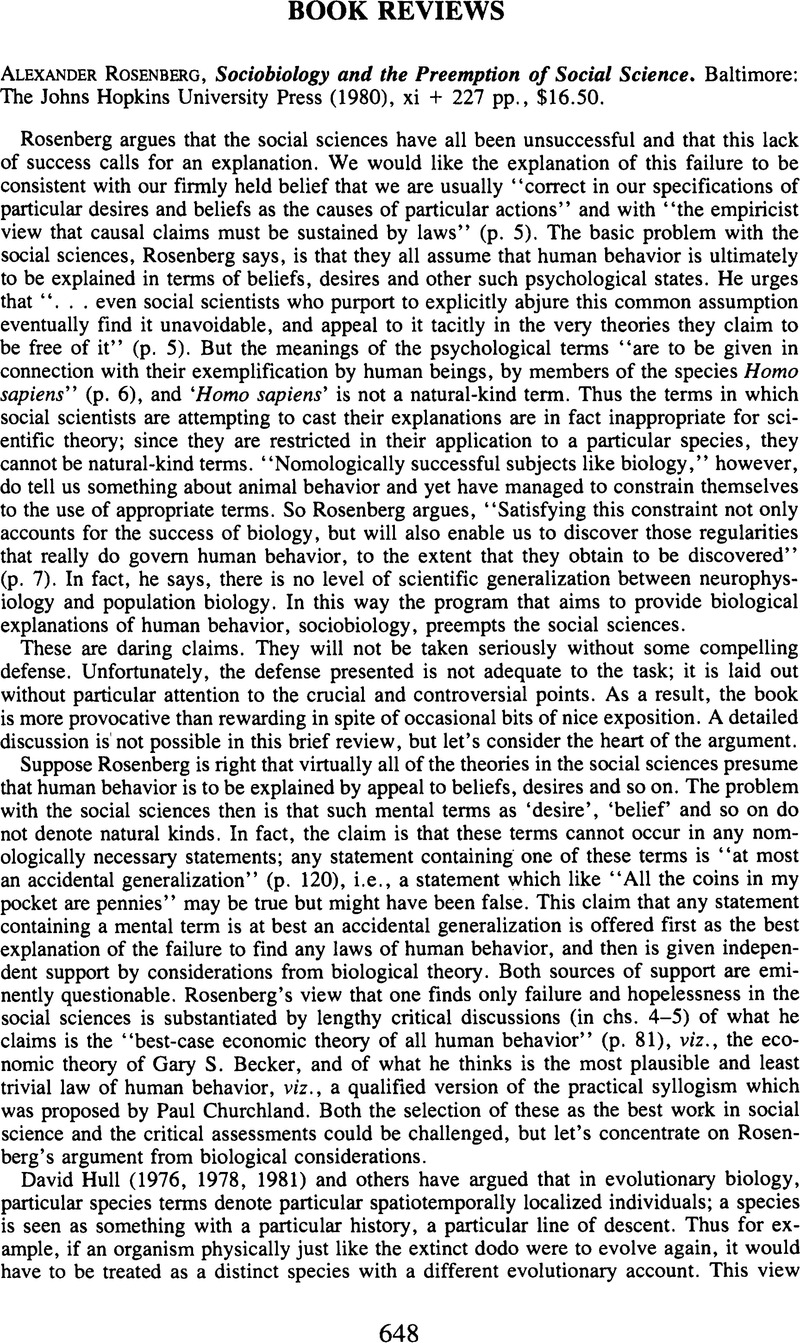No CrossRef data available.
Article contents
Alexander Rosenberg, Sociobiology and the Preemption of Social Science. Baltimore: The Johns Hopkins University Press (1980), xi + 227 pp., $16.50.
Published online by Cambridge University Press: 01 April 2022
Abstract
An abstract is not available for this content so a preview has been provided. Please use the Get access link above for information on how to access this content.

- Type
- Book Reviews
- Information
- Copyright
- Copyright © Philosophy of Science Association 1982
References
Block, N., ed. (1980), Readings in the Philosophy of Psychology, Volume 1. Cambridge, Massachusetts: Harvard University Press.Google Scholar
Caplan, A. L. (1980), “Have species become déclassé?” Asquith, P. and Giere, R. (eds.), PSA 1980, vol. 1. East Lansing: Philosophy of Science Association.Google Scholar
Caplan, A.L. (1981), “Back to class: a note on the ontology of species”, Philosophy of Science, 48: 130–140.CrossRefGoogle Scholar
Chomsky, N. (1959), Review of Verbal Behavior by B. F. Skinner, Language, 35: 26–58.CrossRefGoogle Scholar
Hull, D. (1976), “Are species really individuals?” Systematic Zoology, 25: 174–191.CrossRefGoogle Scholar
Hull, D. (1978), “A matter of individuality”, Philosophy of Science, 45: 335–360.CrossRefGoogle Scholar
Hull, D. (1981), “Kitts and Kitts and Caplan on species”, Philosophy of Science, 48: 141–152.CrossRefGoogle Scholar
Kitts, D. B. and Kitts, D. J. (1979), “Biological species as natural kinds”, Philosophy of Science, 46: 613–622.CrossRefGoogle Scholar
Sober, E. (1980), “Evolution, population thinking, and essentialism”, Philosophy of Science, 47: 350–383.CrossRefGoogle Scholar
Wilson, E. O. (1975), Sociobiology: The New Synthesis. Cambridge, Massachusetts: Harvard University Press.Google Scholar


